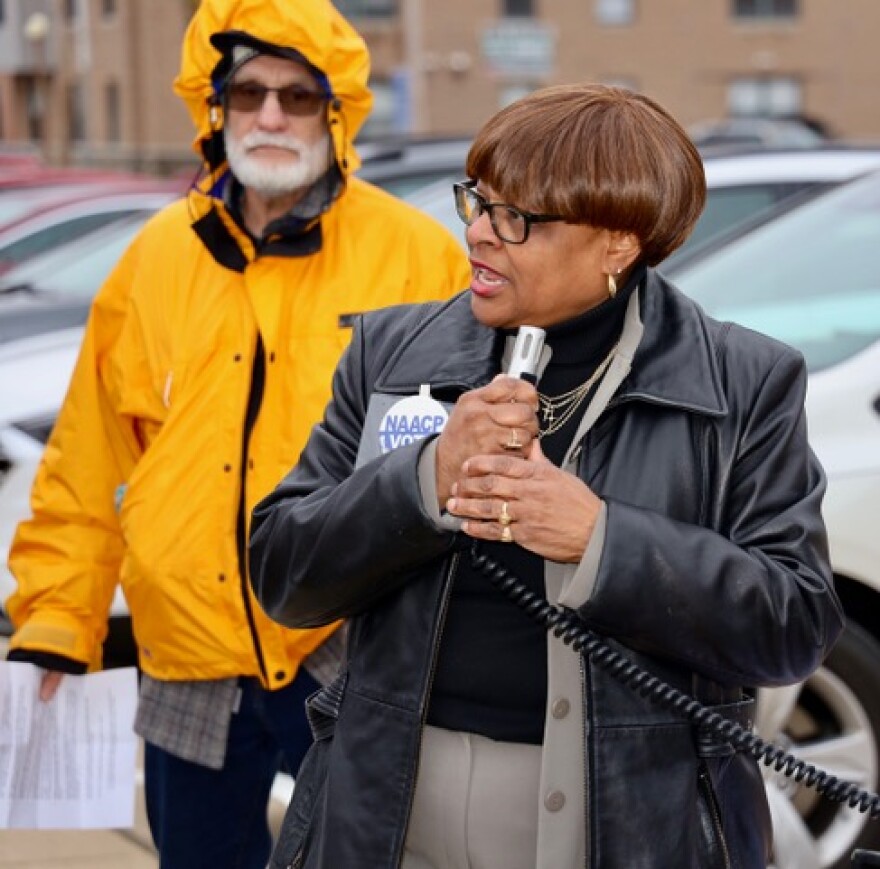The president of Bloomington-Normal’s branch of the NAACP says the coronavirus is sending the community a message.
“Corona has told us: You’ve got to change,” said Linda Foster.
Foster and other black leaders say they’re concerned by COVID-19 patient data showing African Americans are being disproportionately impacted across the U.S. In McLean County, about 1 in 3 confirmed patients are black, even though African Americans only make up around 8% of the general population here.
"This is problematic, and we can no longer afford to ignore it."
“This is problematic, and we can no longer afford to ignore it,” said Carla Campbell-Jackson, first vice president of the local NAACP.
There are several potential reasons for the trend, none especially surprising. Health disparities and access to care play a key role. And many black Americans have jobs that do not give them the luxury of working from home.
COVID-19 is “symptomatic of a plethora of underlying injustices” in the community, said Campbell-Jackson. Black and brown community members have limited access to health care, grocery stores, housing, and good-paying jobs.
“You’re telling people to socially distance (themselves), but they have to cram into apartments, whatever they can afford to be in,” Foster said.
A CDC study of data from the first month of the epidemic showed about 1 in 3 people who become sick enough to require hospitalization from COVID-19 were African American. That echoes what has been seen in other coronavirus outbreaks around the world: People with chronic health conditions have a higher likelihood of developing a serious illness after being infected with coronavirus.
Campbell-Jackson said there is more to unpack there. She has asthma, for example, and carries an inhaler everywhere she goes. She’s convinced she got asthma as a kid growing up in inner-city St. Louis, breathing in unhealthy air from nearby factories.
“Sometimes it takes a disaster like this to shed light on what we’ve always been talking about,” she said.
Campbell-Jackson said the coronavirus is a reminder of how connected we all are.
“If somebody who is African American or Hispanic contracts coronavirus, and then they’re out there waiting on you when you go through the Walmart checkout line, guess what, you can be as white as snow, but there’s a chance that you might be impacted,” she told WGLT. “So therefore, it’s incumbent on all of us to do the right thing so that no one is disenfranchised. We want everybody to be healthy.”
And for those still working at essential businesses, like grocery stores, Foster said she’s concerned about their level of exposure.
“If I’m walking into the store with a mask, why doesn’t the staff have protective equipment on? If they’re considered to be essential personnel, act like they’re essential personnel. Not because of this virus thing. But because they are,” said Foster.
Black Americans need to do their part too, Foster and Campbell-Jackson said. Some may not trust the U.S. health care system based on their past experiences, they said, but the NAACP is still strongly “recommending African Americans seek appropriate care when presented with symptoms consistent with the coronavirus.”
The NAACP is also encouraging its members to abide by the governor’s stay-at-home order, no matter what. For black and brown people, “family means everything,” Foster said. “If I can’t touch and feel my family, I feel as though I don’t have that control.”
“But this is a plea from the NAACP: Please follow those guidelines,” Foster said.
The NAACP’s local branch will host a virtual town hall meeting at 6 p.m. April 16.
We’re living in unprecedented times when information changes by the minute. WGLT will continue to be here for you, keeping you up-to-date with the live, local and trusted news you need. Help ensure WGLT can continue with its in-depth and comprehensive COVID-19 coverage as the situation evolves by making a contribution.


